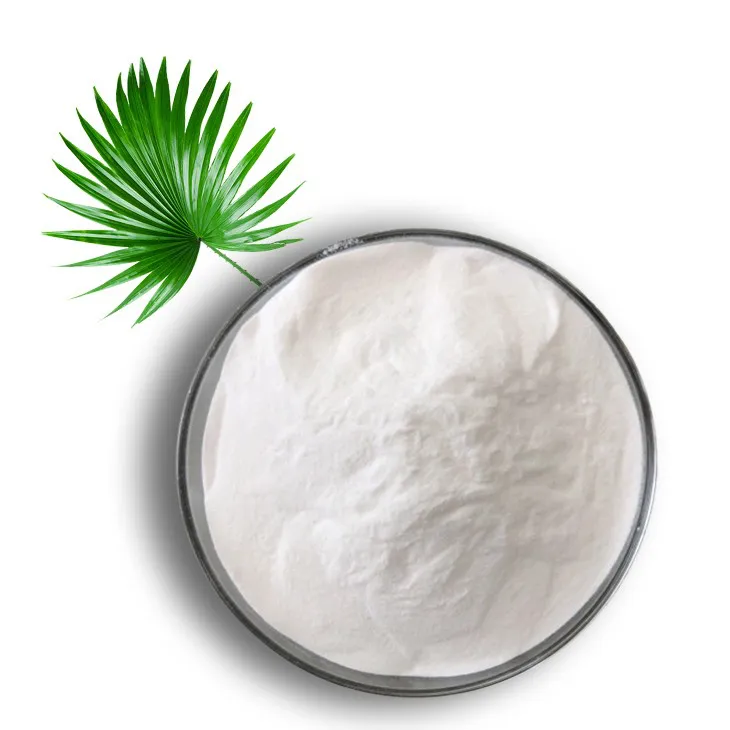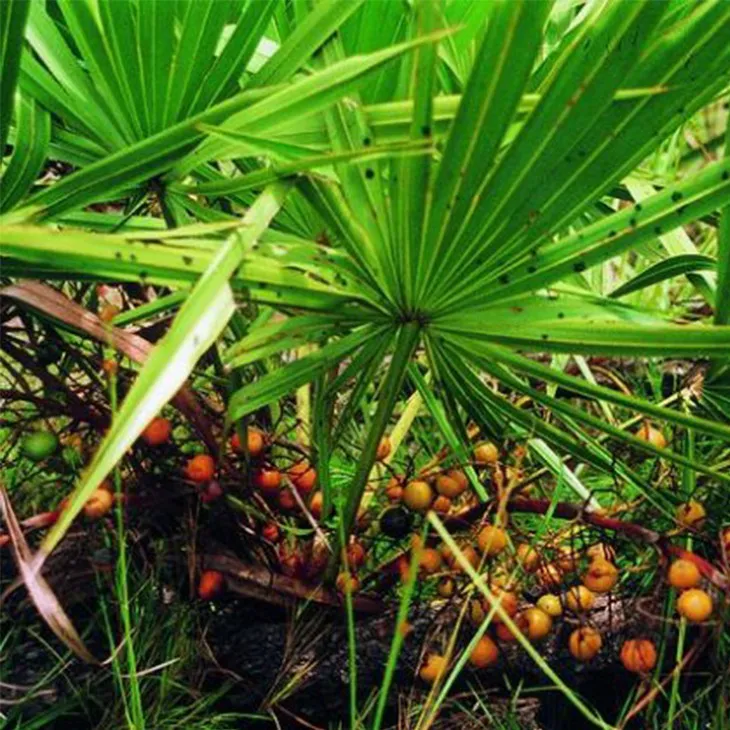- 0086-571-85302990
- sales@greenskybio.com
Adopt an economical and efficient way to purchase saw palmetto extract in batches.
2024-12-19

1. Introduction
Saw Palmetto Extract has gained significant popularity in various industries, including the health and wellness sector. For businesses or individuals looking to acquire large quantities, it is crucial to find an economical and efficient way to make these bulk purchases. This article will explore different strategies to achieve this goal.

2. Sourcing Reliable Suppliers
2.1 Research and Referrals
Online Research: Start by conducting in - depth online research. Use search engines to look for suppliers of Saw Palmetto Extract. Look for well - established companies with a good reputation. Check their websites for information such as the manufacturing process, quality control measures, and customer testimonials.
Industry Referrals: Reach out to industry peers, colleagues, or business associates who have experience in purchasing Saw Palmetto Extract. They can provide valuable insights and referrals to reliable suppliers. For example, if you are in the dietary supplement business, talk to other supplement manufacturers or distributors.
2.2 Supplier Verification
Quality Certifications: Ensure that the supplier has the necessary quality certifications. For saw palmetto extract, look for certifications such as Good Manufacturing Practice (GMP). This certification indicates that the supplier follows strict manufacturing and quality control standards.
Testing and Analysis: Ask the supplier about their testing and analysis procedures for the extract. Reputable suppliers should conduct regular tests to ensure the purity, potency, and safety of the saw palmetto extract. For instance, they may perform tests for the presence of contaminants or to verify the active ingredient content.

3. Comparing Prices Among Different Markets
3.1 Domestic vs. International Markets
Domestic Market: In the domestic market, there may be advantages such as shorter shipping times and potentially easier communication with the supplier. However, domestic suppliers may also face higher production costs, which could result in higher prices. Research local suppliers and compare their prices with what is available in the international market.
International Market: The international market often offers a wider range of suppliers and potentially lower prices. But it also comes with challenges such as longer shipping times, customs duties, and potential language barriers. When considering international suppliers, factor in these additional costs and risks.
- For example, some countries in South America or Asia may have lower production costs for saw palmetto extract due to favorable climate conditions and lower labor costs.
- However, importing from these regions may require dealing with complex customs regulations and longer transit times.
3.2 Online Marketplaces vs. Direct Suppliers
Online Marketplaces: Online marketplaces can be a convenient option for comparing prices. Platforms like Alibaba or Amazon Business offer a wide range of suppliers for saw palmetto extract. You can easily view different product listings, compare prices, and read customer reviews. However, be cautious of counterfeit or low - quality products on these platforms.
Direct Suppliers: Dealing directly with suppliers can often result in better prices, especially for large - volume purchases. By bypassing middlemen, you can negotiate more favorable terms. However, it requires more effort in terms of supplier research and building relationships.

4. Leveraging Volume Discounts
4.1 Understanding Volume Discount Structures
Most suppliers offer volume discounts, but the discount structures can vary. Some suppliers may offer a percentage discount based on the quantity purchased. For example, a 10% discount for purchases of 100 kilograms or more. Others may have tiered discount systems, where the discount percentage increases as the purchase volume rises.
It is important to understand these discount structures clearly. Ask the supplier for a detailed price list that includes the volume discount tiers. This will help you plan your purchases more effectively.
4.2 Negotiating for Better Discounts
Building a Relationship: Establish a good relationship with the supplier. If they see you as a long - term and reliable customer, they may be more willing to offer better volume discounts. Communicate your purchasing plans and requirements clearly to the supplier.
Competitive Bidding: If possible, engage in competitive bidding among multiple suppliers. Let them know that you are considering other options and are looking for the best deal. This can encourage suppliers to offer more competitive volume discounts.
5. Consideration of Shipping and Logistics
5.1 Shipping Costs
Shipping costs can significantly impact the overall cost of your bulk purchase of saw palmetto extract. When comparing suppliers, ask for detailed shipping quotes. Consider factors such as the shipping method (air, sea, or land), the distance, and the packaging requirements.
For large - volume purchases, sea shipping may be more cost - effective, but it also takes longer. Air shipping is faster but more expensive. Choose the shipping method that best balances cost and time requirements.
5.2 Logistics and Packaging
Ensure that the supplier has proper logistics and packaging in place. Good packaging is essential to protect the saw palmetto extract during transit. It should be able to withstand different environmental conditions and handling processes.
Also, consider the logistics capabilities of the supplier. They should be able to handle the volume of your purchase efficiently, including timely delivery and proper inventory management.
6. Quality Control and Product Specifications
6.1 Defining Quality Standards
Before making a bulk purchase, clearly define the quality standards for the saw palmetto extract. This includes parameters such as the purity of the extract, the concentration of active ingredients, and the absence of contaminants.
Refer to industry standards or regulatory requirements to set these quality standards. For example, in the dietary supplement industry, there are specific regulations regarding the quality of herbal extracts.
6.2 Product Testing
Arrange for product testing either by an independent laboratory or by the supplier. Product testing helps to ensure that the saw palmetto extract meets the defined quality standards. Testing can include chemical analysis, microbiological testing, and stability testing.
If the supplier conducts the testing, ask for detailed test reports. These reports can be used as a basis for quality assurance and to verify the claims made by the supplier.
7. Conclusion
Purchasing saw palmetto extract in bulk can be a cost - effective and efficient process if the right strategies are employed. By sourcing reliable suppliers, comparing prices across different markets, leveraging volume discounts, considering shipping and logistics, and ensuring quality control, businesses and individuals can make informed and economical bulk purchases of this valuable extract.
FAQ:
Question 1: How can I find reliable suppliers for saw palmetto extract?
To find reliable suppliers, you can start by researching online marketplaces that specialize in herbal extracts. Look for suppliers with high ratings and positive customer reviews. Additionally, you can ask for recommendations from industry professionals or other businesses that have experience purchasing saw palmetto extract. Another option is to attend trade shows or industry conferences related to herbal products, where you can meet suppliers in person and assess the quality of their products.
Question 2: What are the main factors to consider when comparing prices in different markets?
When comparing prices in different markets, several factors should be considered. Firstly, the quality of the saw palmetto extract is crucial. A lower - priced product may not be of the same quality as a more expensive one. Secondly, shipping costs and delivery times can significantly impact the overall cost. Some markets may offer lower product prices but higher shipping fees. Thirdly, currency exchange rates can also play a role, especially if you are purchasing from international markets. Finally, it's important to consider any import duties or taxes that may be applicable.
Question 3: How can I ensure I'm getting a high - quality saw palmetto extract?
To ensure you're getting a high - quality saw palmetto extract, look for products that are standardized to contain a specific percentage of the active ingredient, such as fatty acids and sterols. Check for certifications from recognized quality control organizations. Also, ask the supplier for information on the extraction process, such as whether it uses organic raw materials and clean manufacturing processes. You can also request samples to test the product's quality before making a large - scale purchase.
Question 4: What are the typical volume discounts available for bulk purchases of saw palmetto extract?
Volume discounts can vary widely depending on the supplier. Some suppliers may offer a percentage - based discount, such as 5% - 10% off for purchases above a certain quantity. Others may have a tiered discount system, where the more you buy, the greater the discount. For example, for small - volume bulk purchases, you might get a 5% discount, but for very large quantities, the discount could be as high as 20%. It's important to negotiate with suppliers to find out what volume discounts they can offer.
Question 5: Are there any regulatory requirements to consider when purchasing saw palmetto extract in bulk?
Yes, there are regulatory requirements to consider. In many countries, herbal extracts are regulated as dietary supplements or food ingredients. You need to ensure that the product complies with local regulations regarding labeling, purity, and safety. For example, the label should accurately state the ingredients and their amounts, and the product should not contain any prohibited substances. Additionally, if you are importing the extract, you may need to meet import regulations, such as providing proper documentation and meeting quality standards set by the importing country.
Related literature
- The Role of Saw Palmetto Extract in Herbal Medicine"
- "Quality Control in Saw Palmetto Extract Production"
- "Sourcing Herbal Extracts: A Guide for Bulk Purchasers"
- ▶ Hesperidin
- ▶ Citrus Bioflavonoids
- ▶ Plant Extract
- ▶ lycopene
- ▶ Diosmin
- ▶ Grape seed extract
- ▶ Sea buckthorn Juice Powder
- ▶ Fruit Juice Powder
- ▶ Hops Extract
- ▶ Artichoke Extract
- ▶ Mushroom extract
- ▶ Astaxanthin
- ▶ Green Tea Extract
- ▶ Curcumin
- ▶ Horse Chestnut Extract
- ▶ Other Product
- ▶ Boswellia Serrata Extract
- ▶ Resveratrol
- ▶ Marigold Extract
- ▶ Grape Leaf Extract
- ▶ New Product
- ▶ Aminolevulinic acid
- ▶ Cranberry Extract
- ▶ Red Yeast Rice
- ▶ Red Wine Extract
-
Lily extract
2024-12-19
-
Bitter Melon Extract
2024-12-19
-
Sea buckthorn Juice Powder
2024-12-19
-
Mangosteen extract powder
2024-12-19
-
Withania Somnifera Extract
2024-12-19
-
Curcuma Longa Extract/Turmeric extract
2024-12-19
-
Nettle Root Extract
2024-12-19
-
Bamboo Leaf extract
2024-12-19
-
Hesperidin
2024-12-19
-
Wheat Germ Extract
2024-12-19





















